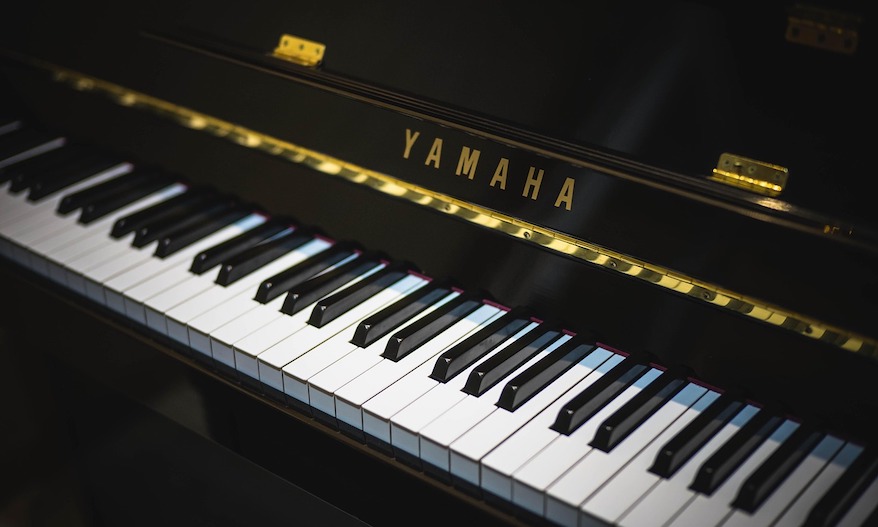When people decide to learn an instrument, the piano often comes to mind first. However, the modern keyboard, sleek and portable, calls to a different kind of musician. The real question rests upon, what kind of musician are you? One who prefers elegance, history, and depth or versatility, technology, and accessibility. The two look similar, share many of the same notes, yet learning them can lead you down subtly different musical roads.
Skill Crossover: Same Notes, Different Purpose
So which should you choose? Let’s explore:
The Piano: Historic, Warm, and Elegant
Learning to play on a traditional piano is like learning to write with a fountain pen, it forces precision, control, and appreciation for craft. Each key demands proper finger technique and strength, as the hammer mechanism translates your touch into sound. This develops muscle memory and dynamic control, two traits that shape expressive players.
This also trains the ear in ways a digital substitute cannot fully achieve. The sound resonates physically through wood and string, teaching the player how harmony blends together. The multiple pedals become like a painter’s brushes. blurring lines, blending tones, evoking emotion. For students aiming for classical mastery or compositional depth, the piano remains the cathedral of musicianship.
Acoustic pianos can be expensive, heavy, and high-maintenance. They require tuning, space, and care, but can also be seen as a lasting family heirloom. Yet, if your home hums with technology and limited square footage, the piano might feel more like a guest than a companion which brings us to the Keyboard option.
The Keyboard: Flexible, Versatile, and Multifunctional
The keyboard belongs to the digital age, inviting experimentation. It’s the kind of instrument that says, “Plug me in, and let’s make something new.” For beginners, the keyboard removes barriers, features lighter keys, adjustable volume, headphone options, and hundreds of tones ranging from grand pianos to futuristic synths.
Keyboard learners often gain a broader understanding of modern music production. They learn how to work with backing tracks, MIDI interfaces, and recording software. In today’s music industry, those skills translate to currency. A keyboardist can transform into a one-person orchestra or studio producer.
There’s also an element of accessibility with keyboards. A young student might find joy in instant creativity, layering drumbeats, adding voice layers, or playing back an original melody. The experience is less about formal discipline and more about exploration. That freedom often keeps students motivated. This option requires keeping up to date with technology and purchasing different tools for your keyboard, Interfaces, a DAW (garage band) and a multitude of other options.
Piano roots you in tradition, Keyboard propels you toward innovation.
Here’s the truth, learning either instrument strengthens the same musical foundation, note reading, rhythm, hand coordination, and music theory. A student who begins on a keyboard can easily transition to piano later, and vice versa. But the mindset and purpose each instrument cultivates differs.
Piano teaches discipline and depth. You learn to feel music.
Keyboard teaches versatility and creativity. You learn to build music.
Piano roots you in tradition, Keyboard propels you toward innovation.
Final Thoughts Choose for Your Lifestyle, Not for Status
Growing up, I began with a keyboard as my first ever instrument. I was mesmerized with how much I could do with it through its innovative technological advancement. Later on, I translated those skills to an acoustic upright Yamaha piano and discovered the warmth and depth acoustic sound offers. In hindsight, I learned much from both perspectives.
If your dream is to perform classical pieces, compose film scores, or develop expressive touch, start with an acoustic (or a fully weighted digital) piano. It will challenge you technically but reward you emotionally.
If your goals lean toward songwriting, digital production, or performing in bands, start with a keyboard. It’s affordable, portable, and adaptable, perfect for the modern creator.
Ultimately, the question isn’t “Which is better?” but “Which best fits who you are right now?”
The piano is a temple; the keyboard is a laboratory.
The Cross Road: Piano vs Keyboard
